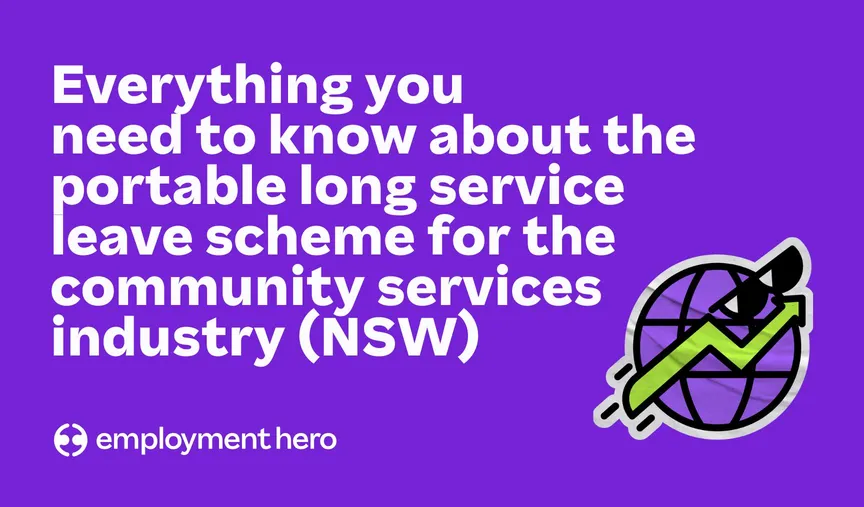How to help your team beat imposter syndrome
What if you find that one of your employees seems persistently down, quiet or intimidated? What do you do if an employee consistently undervalues their own work or seems unable to share their thoughts and ideas? You may need to offer them a helping hand to help them feel better and reach their true potential.

Everyone, at some point in their career, has experienced feeling less-than-confident. Whether you were a nervous junior, who felt like they had everything to prove, a new recruit meeting a highly-skilled team or an employee who has recently received a promotion – feeling like you don’t belong in a workplace or don’t deserve to be there is one of the most universal experiences going around.
In fact, research suggests that up to 70% of all professionals encounter imposter syndrome at some point in their career.
Generally, an employee will start to feel more confident after a few days or as they settle into their roles and teams. But what if you find that one of your employees seems persistently down, quiet or intimidated? What do you do if an employee consistently undervalues their own work or seems unable to share their thoughts and ideas?
You may need to offer them a helping hand to help them feel better and reach their true potential.
What is imposter syndrome?
Imposter syndrome is a feeling of low self-esteem that makes an individual believe that they don’t deserve to be in their role, position or environment.
When a person is experiencing imposter syndrome, they may feel like a fake or fraud and that they don’t actually have the skills or qualifications to succeed. The feeling can be quite precarious – at any time they feel like they could be ‘found out’ for not being capable.
Every achievement or success they’ve had has occurred out of luck – not gained through skill, personality or perseverance. They feel that any action that they make could leave them exposed and – in a workplace context – fired and shown the door.
Is your skin crawling at the thought? Ours too. 
It’s kinda like wanting to do this… Every minute. Of every day.
The good news is that this phenomenon is quite common and can be worked on. It also more frequently occurs in people that are high-achievers. So the silver lining is that if you’re experiencing imposter syndrome, it may be a sign that you’re actually a high performer.
This doesn’t, however, make the experience of it any less unpleasant. So what happens when you experience imposter syndrome?
You might engage with one or several of these coping mechanisms:
- Undermining your own achievements – you think that everything you’ve done right is a lucky coincidence. You would never share your successes with others because they might find out that you didn’t really do anything.
- Being a perfectionist – if you make even one small mistake, that increases your chances of being ‘found out’. You exhaust yourself by working overtime or on weekends trying to make every little detail absolutely perfect. You’re unlikely to ever ask for help.
- Setting extremely challenging goals, and kicking yourself when you fall short – you feel like you need to prove yourself constantly, so you set unrealistic goals. When you fall short, this is further ‘confirmation’ that you’re not a capable employee.
- Rejecting praise – if your colleagues ever praise or recognise a piece of your work, you’re likely to respond with “it could have been a lot better”, “it’s not as good as it should have been” or “it wasn’t really me, it’s good because [other team member] stepped in”. You also downplay your own expertise and knowledge.
- Overwhelming fear of failing – thoughts of failure, rejection and being found out for ‘who you really are’ keep you up at night and make working an anxious experience.
How can low self-esteem affect employees?
A long-term sense of imposter syndrome can have extremely negative effects on the individual, potentially resulting in employee burnout, a lack of career growth and even depression, anxiety and social isolation.
If one or several employees on your team are struggling with imposter syndrome, you’re not going to be getting the best out of them. They could be disengaging from their work, not putting forward great ideas for fear of failing, or not participating in collaborative work.
In other words, there are a heap of reasons why employers should be seeking to help their team with imposter syndrome.
For more insights on inspiring your team and improving motivation, check out this guide: How to inspire a team at work as a leader.
How can you tell if someone is struggling with imposter syndrome?
Identifying imposter syndrome can be difficult because the person suffering from it might seem confident on the outside. For this reason, it can be a good idea to first consider if the individual is suffering from a lack of confidence or if they’re just introverted.
It’s important to note that just because you have an employee who is generally quieter or less open, it doesn’t necessarily mean that they are experiencing low self-esteem. You will have a number of different communication styles existing within your team, some being more subtle than others.
Introverts draw their energy from time spent alone. They might enjoy small periods of being with others, but a large amount of socialising may be draining or exhausting. Introverts are unlikely to be able to show a lot of big, confident personalities for long periods of time, and this could have nothing to do with a lack of self-belief.
So don’t look only at your introverted staff members or disregard your extroverted staff members because extroversion may not necessarily be a show of self-confidence – it could easily be a front for a serious imposter syndrome.
Instead, look out for the qualities listed above and ask these questions:
- Can you see perfectionist tendencies?
- Do they disregard any positive feedback or get incredibly uncomfortable when you pass on negative feedback?
- Do they have difficulty sharing their ideas with the rest of the team?
- Do you notice that they’re online working long after the workday is over?
- Do they frequently seem awkward or ashamed?

Me facing my imposter syndrome demons.
💡 Want more insights about the mental wellbeing of your team? Check out our free Psychological Safety Survey Template.
To explore how fostering emotional intelligence can benefit your workplace, read this article: Cultivating emotional intelligence in the workplace.
Tips to help someone in your team beat imposter syndrome
Luckily, there are lots of things that managers and employers can do to help their team beat imposter syndrome.
Be specific about your feedback
Individuals who are struggling with imposter syndrome can find feedback really difficult to process. On the one hand, they don’t enjoy receiving positive feedback – they will often defer to another staff member or put their success down to luck or a ‘fluke’.
On the other hand, negative or constructive feedback can cause them to have a downward spiral as if they feel that their negative impressions of themselves are being confirmed.
When you’re giving good feedback, make sure that you’re really specific about how their work is great. When you say to a Social Media Coordinator, “that Facebook post was written really well, that’s why it had such a great response with our community”, it points to their strengths, making it harder for them to chalk it up to luck.
When you’re giving negative or constructive feedback, try and soften the conversation around it. Be clear about what was done wrong and what you need from them, then try and balance out the negative feedback with something positive.
It’s also great to be able to share some examples of when you have received some constructive feedback and how it helped you perform better at work so your employee understands that no one’s perfect.
Own your mistakes
And encourage others to do the same! It’s no secret that we all mess up sometimes – mistakes are a natural part of life, and they’re essential to personal and professional growth.
Lead by example, and own your mistakes graciously in view of your team when you make them. Explain what was done wrong, how it happened and what you’ll do differently next time. After that, move on and show that it doesn’t have to affect your work or mood long-term.
As the queen of vulnerability, Brene Brown, says:
“Vulnerability is not winning or losing; it’s having the courage to show up and be seen when we have no control over the outcome. Vulnerability is not weakness; it’s our greatest measure of courage.”
Own the uncomfortable; you and your team will benefit. When you’re challenging negative self-talk from others – say your staff member says “I’m so stupid” or “my work sucks today” – point to your own mistakes.
Say, “remember that time when I made that mistake the other day, it happens to everybody!” 
In short, sh*t happens.
Have fun with some good old-fashioned team building
It’s hard to get to know your colleagues if your team only ever talks about work. Take some time out of your day to run a team-building game – and have some fun while getting to know each other better.
Team building games are designed to encourage teamwork, collaboration and creativity – three things that are often tricky for people with imposter syndrome to embrace.
The more they engage with team-building games, the more they are likely to understand their peers on a personal level and see them as real people who aren’t waiting to catch them out.
🎲 Working remotely? Here are 39 online team-building games to get the good times rolling! 
Time for a team dance-off?
Fostering happiness in the workplace can also mitigate the effects of imposter syndrome. Learn 11 ways to do this here.
Create a relationship of trust with 1:1s
While creating a great culture as a team is important for employee confidence – having a trusting relationship is equally critical in helping staff overcome imposter syndrome.
We’re big advocates of the one-on-one meetings – these powerful little get-togethers can do wonders in building great relationships with your staff. A regular meeting that takes place between your staff member and their immediate manager, 1:1s can strengthen bonds, improve communication and give your employee a chance to share any issues privately.
As this relationship starts to build, you’ll be able to talk more openly about your employees feelings. They’ll feel more comfortable opening up about their concerns, and you’ll be able to talk through actionable steps outside of the meeting to help them feel more confident.
👉 Stuck for effective questions to ask in a 1:1? We’ve got 105 of them right here.
Connect your employee with a mentor
Another way to help your employee build confidence is to connect them with a professional mentor. A mentor can be another source of support and advice for your staff member.
A mentor doesn’t necessarily have to be from the same company, they can also be influential figures within the industry. Finding a mentor that sits outside your immediate team is highly recommended – as they can give more impartial advice about your employee’s experience.
Mentoring can not only help an employee build confidence, but it can also help them improve their people skills and communication skills, provide alternate perspectives and introduce them to broader networks.
💡 Want to start a mentoring program in your workplace? Here are 5 steps to help you get started.
Share support resources if necessary
If you feel like your employee requires more support – if they are withdrawing from work, seem constantly down, or can’t stop the negative self-talk – have a confidential check-in and share resources.
Sometimes the best thing to do to overcome major self-doubt is to talk it through with a professional. Visit Checkpoint to find free support in your country. If you have the budget, consider engaging in an Employee Assistance Program (EAP). This is a free and confidential counselling service to assist your employees.
☀️ Need some more ideas on how you can support employee wellness? Download our free Workplace Wellness Pack for Employers.
Getting honest feedback from employees can provide invaluable insights. Here are the ways to obtain it.
Manage your business confidently with Employment Hero
Employment Hero can help you run your business confidently and help keep your team happy and engaged. Stay one step ahead of compliance, employee management, employee engagement and more. Talk to one of our small business specialists today.
Related Resources
-
 Read more: NSW Government introduces Portable Long Service Scheme for the Community Services Industry
Read more: NSW Government introduces Portable Long Service Scheme for the Community Services IndustryNSW Government introduces Portable Long Service Scheme for the Community Services Industry
The NSW Government has introduced portable long service leave for the community services industry. Learn what it is and what…
-
 Read more: Payday Super changes: What we’re fighting to fix and why it matters to you
Read more: Payday Super changes: What we’re fighting to fix and why it matters to youPayday Super changes: What we’re fighting to fix and why it matters to you
Big changes are coming to how superannuation is paid in Australia. Here’s what we’re asking Treasury to seriously consider updating…
-
 Read more: Why choice in superannuation matters
Read more: Why choice in superannuation mattersWhy choice in superannuation matters
What could be coming when Payday Super hits and what Employment Hero is doing about it.












